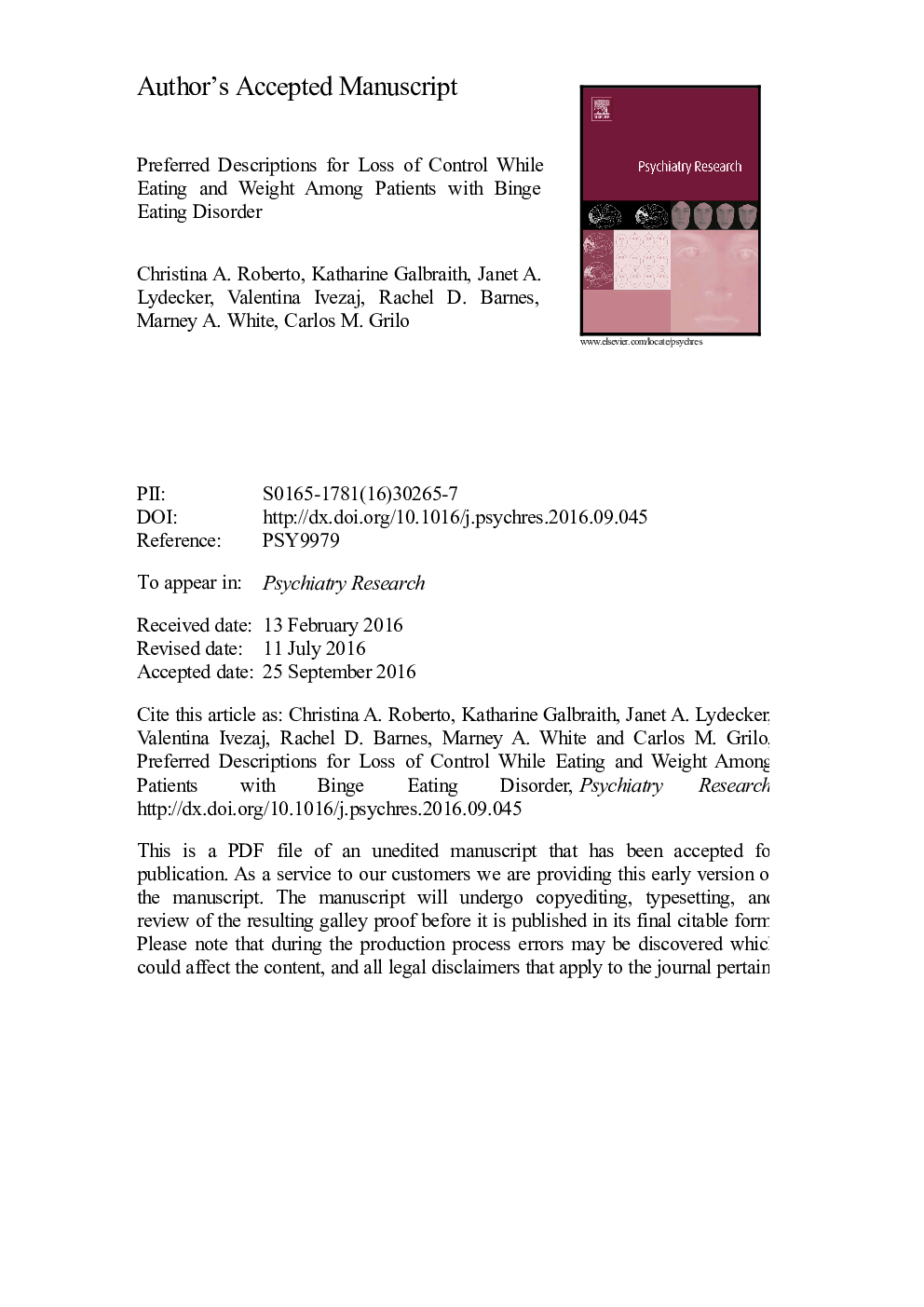| Article ID | Journal | Published Year | Pages | File Type |
|---|---|---|---|---|
| 4933833 | Psychiatry Research | 2016 | 19 Pages |
Abstract
Patients with binge eating disorder (BED) typically also have excess weight, making them vulnerable to stigmatizing attitudes about mental illness and obesity. Further, one of the diagnostic features of BED is experiencing a loss of control during binge eating episodes. It is possible that patients feel negatively judged when clinicians assess for loss of control as it may activate stereotypes of patients with obesity lacking willpower. We developed a questionnaire to assess preferences for common loss of control descriptions and gathered data on preferences for weight-related terms among 46 patients with BED. Analyses revealed the majority of common descriptors for loss of control eating were viewed neutrally, with loss of control being the most preferred term. Descriptions suggesting patients were addicted to food or did not consider stopping eating once they started binge eating were viewed negatively. The following weight descriptions were viewed negatively: heaviness, large size, obesity, excess fat, and fatness. Terms such as BMI, and unhealthy body weight or BMI were viewed more favorably and weight was the most preferred term. These findings provide empirical support for healthcare providers' use of terms to use and terms to avoid when talking to patients with BED about eating and weight.
Keywords
Related Topics
Life Sciences
Neuroscience
Biological Psychiatry
Authors
Christina A. Roberto, Katharine Galbraith, Janet A. Lydecker, Valentina Ivezaj, Rachel D. Barnes, Marney A. White, Carlos M. Grilo,
